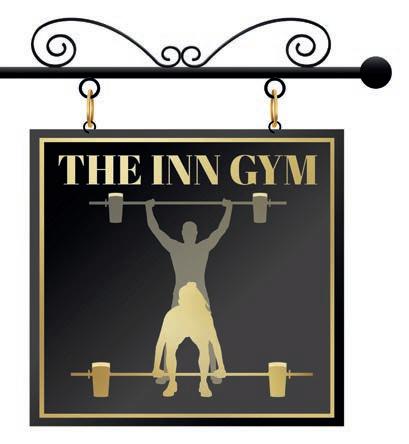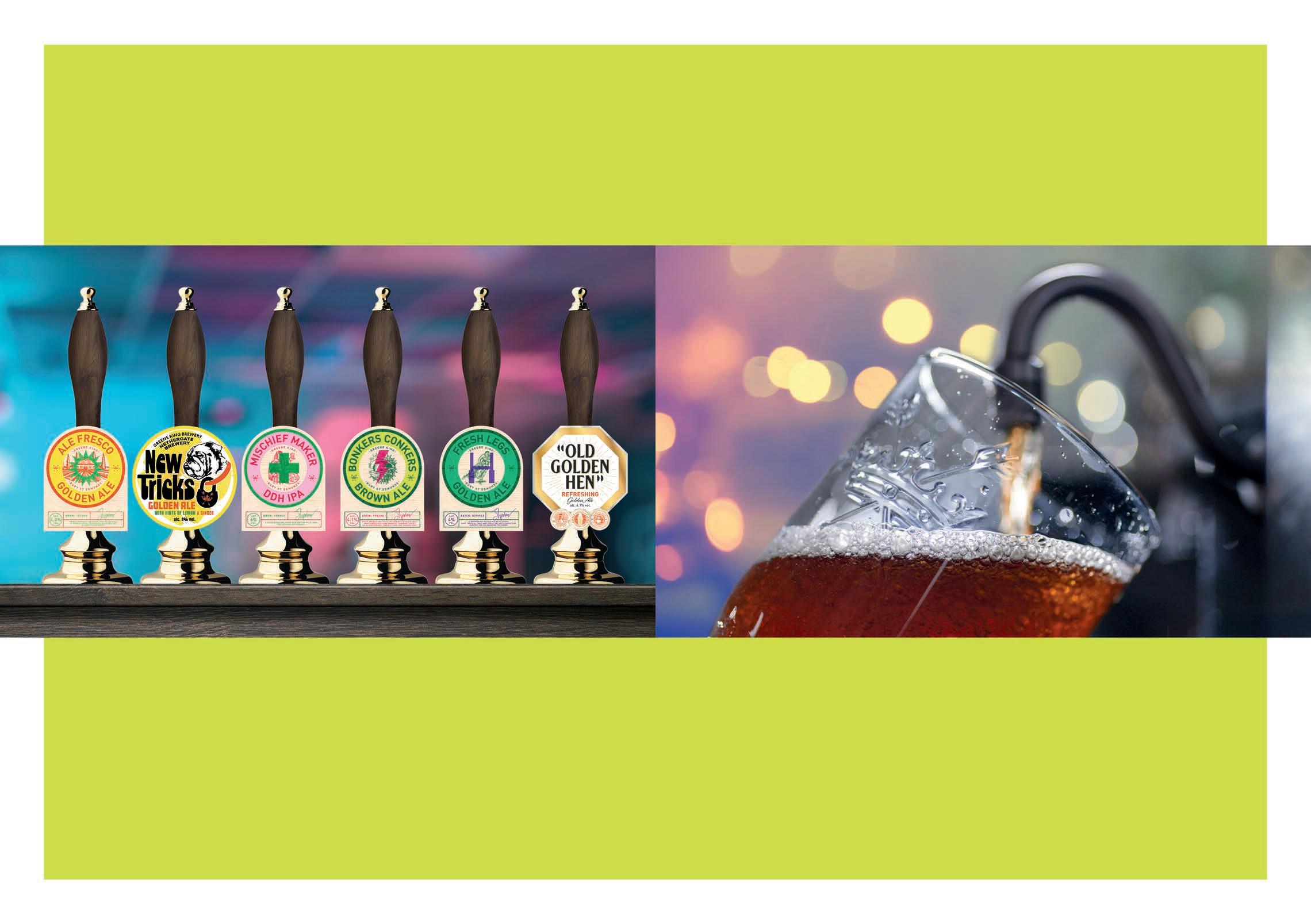
4 minute read
Keep ’em coming
by JOHN PORTER
CGA by NIQ’s consumer research shows 42 per cent of people say they are willing to spend more on better quality, as long as they feel they are getting full value for the extra expense. In contrast, 45 per cent of people are reducing their spend when they go out to eat and drink.
It’s a trend that Michael Pearson, licensee of The Wych Elm, a Fuller’s tenancy in Kingston, south-west London, recognises. He says: “Overall, I’d agree customers are eating out less, but when they do, they’re spending more. Our turnover patterns are slightly down on Monday to Wednesday, and fairly stable Thursday to Sunday. It’s not an exact science, of course – it does fluctuate.”
The pub is in a fairly affluent area and is popular with visitors to nearby attractions such as Hampton Court Palace, helped by bookings driven by The Wych Elm’s consistently high ranking on TripAdvisor. All food is fresh and cooked to order, with a core menu of classic pub food complemented with more premium specials.
Good-value grub
The pub has traditionally offered good-value meals to drive trade on quieter days and restoring “that early-week trade is definitely a target for us”, says Pearson. “Our menu is always interspersed with very good-value dishes.” Examples include pork ribs, taken off the pork belly served on Sundays and frozen. “When we’ve got enough for, say, 20 to 40 portions, we’ll put them on the menu at £12, served with chips and coleslaw.
“If our butcher offers 40 pork rump steaks at a good price, the chef will snap those up and we’ll put them on with chips and salad for £10. You’ve definitely got to work harder with your suppliers, but it’s doable.”
However, he warns about the dangers of discounting. “You’re probably just giving a bigger discount to the business you’ve already got. Where people aren’t coming out, it’s because their mortgage has trebled or their gas bill has risen by 50 per cent. Their eating out budget has gone altogether.”
At the other end of the customer spending range, Pearson is only too aware “for a table of two, the bill is now £100 to £150 – in a pub! Customers are expecting it, they know prices have gone up, but what softens the blow is making sure it’s worth it. Everything has to be perfection.”
At The Durham Ox pub and restaurant in Crayke, Noth Yorkshire, owner Michael Ibbotson says: “I don’t have a magic bullet, but in my experience as a restaurateur and publican, it’s never been more important than it is now to give people a quality, worthwhile experience.
“We approach everyone at the Durham Ox as if they’re coming out for a treat, so we’re trying to make everything as good as it can possibly be. For example, I said to my butcher, neither of us is going to win a cheapest steak award, so what’s the absolute best steak you can do?
“We haven’t suddenly started charging for bread baskets or side dishes. Equally, we haven’t gone down the Early Bird or Happy Hour route, because there isn’t enough margin left to do that any more. It’s not the amount you pay in pounds, it’s the value you get. It’s expensive to eat out now, so you need
New products
• Plant-based specialist Redefine Meat has launched five new products in its New-Meat range. Along with a tenderloin and a striploin, which deliver the texture and character of beef, there is a new category of “pulled” meat featuring beef, lamb and pork alternatives. This range enables pubs to serve a wide range of dishes without the need for slow cooking, saving on energy.

• Also in the plant-based market, frozen food distributor Central Foods has launched a new vegan Asian-style prawn snack selection. Featuring filo-wrapped, breaded, and battered vegan choices, the products can be served as starters, on sharing platters, in tapasstyle dishes, as part of a buffet or as street-food options. Central Foods has also launched vegan cocktail sausage rolls into its KaterVeg! Range. made from pea protein and ideal for buffets and functions.
• New to Bells of Lazonby’s We Love Cake range is a vegan and free-from Cherry Bakewell tart. Gluten, wheat and milk free, while still offering the iconic taste of the classic British cake, the product is supplied frozen and works as a dessert option or an accompaniment to hot drinks.
to have had a really good evening, been made to feel special and you’ve eaten well.”
Menu prices at The Durham Ox are being reviewed more frequently, with smaller changes applied to account for the impact of inflation, rather than raising prices steeply less often. The pub is also being flexible on margins and applying a cash margin rather than percentage on more premium dishes.
“We like to serve lobster, we like to serve turbot, but if I was to apply the usual 71 per cent GP, we’d never sell any,” says Ibbotson.
The National Farmers Union (NFU) has called for closer links with hospitality, with NFU president Minette Batters saying “developing relationships between the out-of-home sector and British farmers and growers will create even more opportunities to serve up local food that is safe and fully traceable, providing the provenance the public increasingly appreciates”.
Partnering with producers
Rachel Dobson, managing director of hospitality buying specialist Lynx Purchasing, believes a partnership approach with local producers is more of an opportunity for many pubs than trying to compete on price alone. “There are some very difficult choices for operators ahead. It’s either keeping menu prices low or serving high-quality produce that offers consumers a genuinely different choice.”
Dobson adds: “While the Bank of England is forecasting inflation will ease later this year, the price rises operators have seen over the past two years are now bedded in.
“We’re starting to see some price improvements on products that have seen the biggest increases, such as dairy and oils, but higher food costs are here to stay. Once consumers feel more confident about spending, the opportunity for hospitality will be to add value to menus, rather than cut margins. In addition, showing support for British food producers has genuine customer appeal.”











